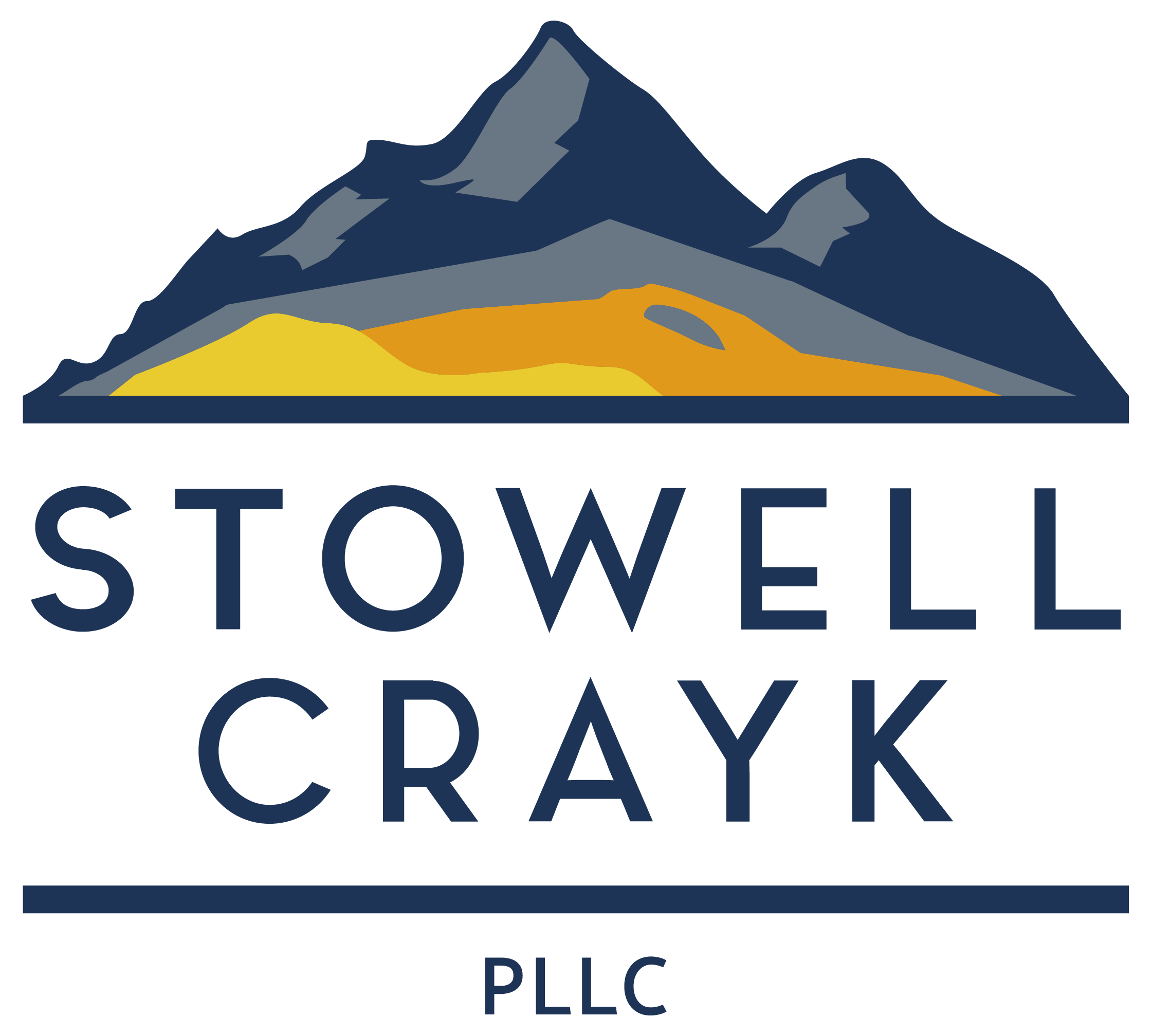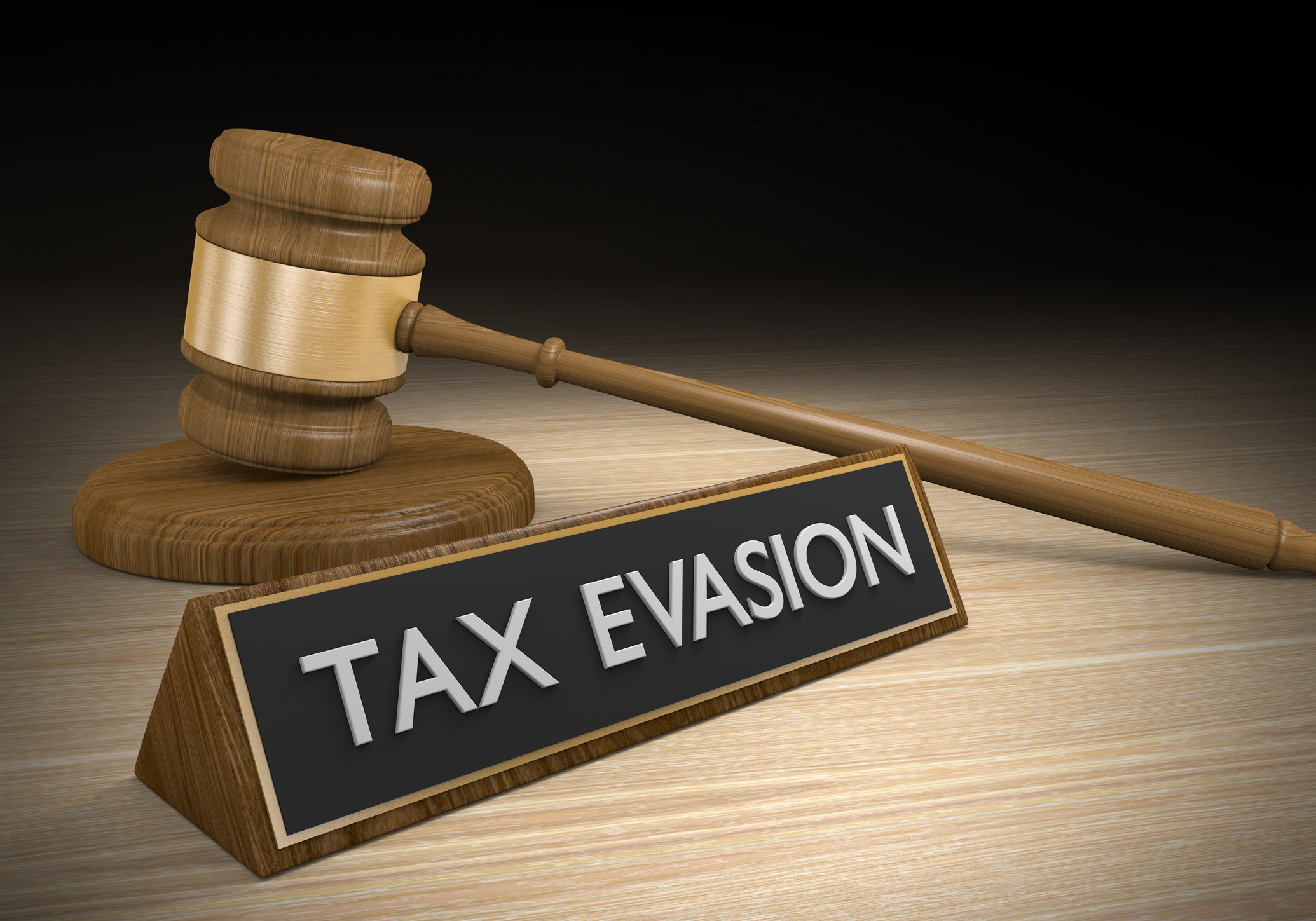Taxation is an important aspect of any society, providing the necessary funds for public services and infrastructure. However, there are many difficulties of tax laws that can sometimes lead to unintentional errors or, in more severe cases, deliberate wrongdoing. Two terms that often cause confusion are tax fraud and tax evasion. While they both involve illegal activities related to taxes, they have distinct differences that are important to understand. Here at Stowell Crayk, we work to make sure this doesn’t happen to you or others.
Tax Evasion:
Tax evasion refers to the illegal act of intentionally underpaying or avoiding taxes owed to the government. This can take various forms, such as underreporting income, inflating deductions, hiding money in offshore accounts, or engaging in other deceptive practices to reduce taxable income. Tax evasion is a serious offense that can result in both civil and criminal penalties.
Firstly, one common method of tax evasion is the concealment of income. Individuals or businesses may engage in underreporting their earnings to the tax authorities, thus paying less in taxes than they legally owe. This dishonest practice undermines the tax system and places a burden on those who fulfill their tax obligations responsibly.
Secondly, another form of tax evasion involves hiding assets or income in offshore accounts. Individuals looking to evade taxes may use offshore entities to hide their wealth from taxation authorities. This not only deprives the government of its rightful revenue but also sets back efforts to ensure a fair and just tax system.
Lastly, penalties for tax evasion can include substantial fines, imprisonment, or a combination of both. The severity of the consequences depends on factors such as the amount of evaded taxes, the duration of the evasion, and whether the evasion was a one-time occurrence or a repeated offense. At Stowell Crayk we are a law firm making sure that everyone receives what they deserve.
Some examples of Tax Evasion are:
1. Underreporting Income:
- Concealing or not reporting all sources of income, such as cash transactions or income from side jobs, to reduce the taxable income.
2. Inflating Deductions:
- Exaggerating or fabricating business expenses, deductions, or credits to reduce taxable income artificially.
3. Hiding Assets in Offshore Accounts:
- Transferring funds or assets to offshore bank accounts to avoid detection and taxation.
4. Engaging in Shell Company Schemes:
- Creating fake companies with no real business operations to funnel money and hide income from tax authorities.
5. Engaging in Transaction Laundering:
- Structuring transactions in a way that avoids reporting requirements, often by making multiple smaller transactions instead of one large transaction.
6. Understating the Value of Assets:
- Undervaluing assets, such as real estate or investments, to reduce the tax liability associated with capital.
7. Phantom Employees and Payroll Fraud:
- Creating fake employees or manipulating payroll records to wrongly reduce employment tax.
8. False Charitable Contributions:
- Claiming inflated or entirely fictional charitable donations to lower taxable income.
9. Fake Invoices and Expenses:
- Generating fake invoices or receipts for goods or services that were never provided, creating non-existent expenses.
10. Off-the-Books Transactions:
- Conducting business transactions off the books, without proper documentation, to hide income from tax authorities.
Tax Fraud:
While tax evasion involves the intentional evasion of taxes, tax fraud encompasses a broader range of fraudulent activities related to taxes. Tax fraud can involve deceitful practices, misrepresentation of information, or the use of false documentation to manipulate the tax system. Here at Stowell Crayk we are also well versed in how to help with the problems and issues of tax fraud.
Firstly, one common form of tax fraud is the submission of false information on tax returns. This may include providing fictitious expenses, inflating deductions, or creating non-existent charitable contributions. The objective is to reduce the taxable income artificially, leading to lower tax liabilities.
Additionally, tax fraud can also involve the creation of financial records or the use of fake plans to evade taxes. For example, a business might engage in fake transactions or create shell companies to put in money and deceive tax authorities. Such actions not only go against tax laws but also take away the trust essential for a fair tax system.
Lastly, in addition to tax fraud, penalties for them are similar to those for tax evasion, encompassing fines, imprisonment, or both. Additionally, individuals found guilty of tax fraud may be required to pay for the fake amounts and may face civil lawsuits from those affected.
Here are some examples of Tax Fraud:
1. Falsifying Income on Tax Returns:
- Submitting tax returns with intentionally false information about income, inflating expenses, or making up deductions to lower the taxable income.
2. Creating Fake Businesses:
- Establishing fake businesses or shell companies to create false income and expenses on tax returns.
3. Identity Theft for Tax Refunds:
- Stealing personal information, such as Social Security numbers, and using it to file fraudulent tax returns and claim fake refunds.
4. False Claims for Credits and Deductions:
- Making false claims for tax credits or deductions, such as exaggerating education expenses or claiming credits for which the taxpayer is not eligible.
5. Fake Employees and Payroll Schemes:
- Creating non-existent employees or manipulating payroll records to fraudulently reduce employment taxes.
6. Hiding Income in Offshore Accounts:
- Using offshore accounts to hide income and assets, often facilitated by complex financial arrangements to evade detection.
7. Forgery and Altered Documents:
- Forging signatures, altering invoices, or making up other documents to support fraudulent tax claims.
8. False Charitable Contributions:
- Claiming inflated or entirely fake charitable donations on tax returns to lower taxable income.
The Importance of Compliance and Ethical Tax Practices:
Additionally, in an era of increasing inspection and technological advancements, tax authorities are becoming better at detecting fraudulent activities. Here at Stowell Crayk we help with making sure that tax fraud and tax evasion aren’t happening to you ar your company. As a result, individuals and businesses must prioritize ethical tax practices to avoid legal consequences and reputational damage to themselves or their company. Seeking professional advice, staying informed about changes in tax laws, and maintaining accurate financial records are essential steps in ensuring ethical tax conduct.
Conclusion:
In summary, while tax evasion and tax fraud share the common thread of involving illegal activities related to taxes, they differ in scope and methodology. Tax evasion specifically refers to the intentional underpayment or avoidance of taxes, often through deceptive practices like underreporting income or hiding assets. On the other hand, tax fraud has a broader range of illegal activities, including the submission of false information and the use of deceitful plans to manipulate the tax system.
In conclusion, both tax evasion and tax fraud go against the integrity of the tax system and contribute to an unfair distribution of taxes. It is crucial for individuals and businesses to be aware of the consequences of such actions and to fulfill their tax obligations ethically and responsibly. As tax laws evolve, staying informed and seeking professional advice like us at Stowell Crayk, we can help ensure you and your company are following the rules and helping create a fair and clear tax system.

